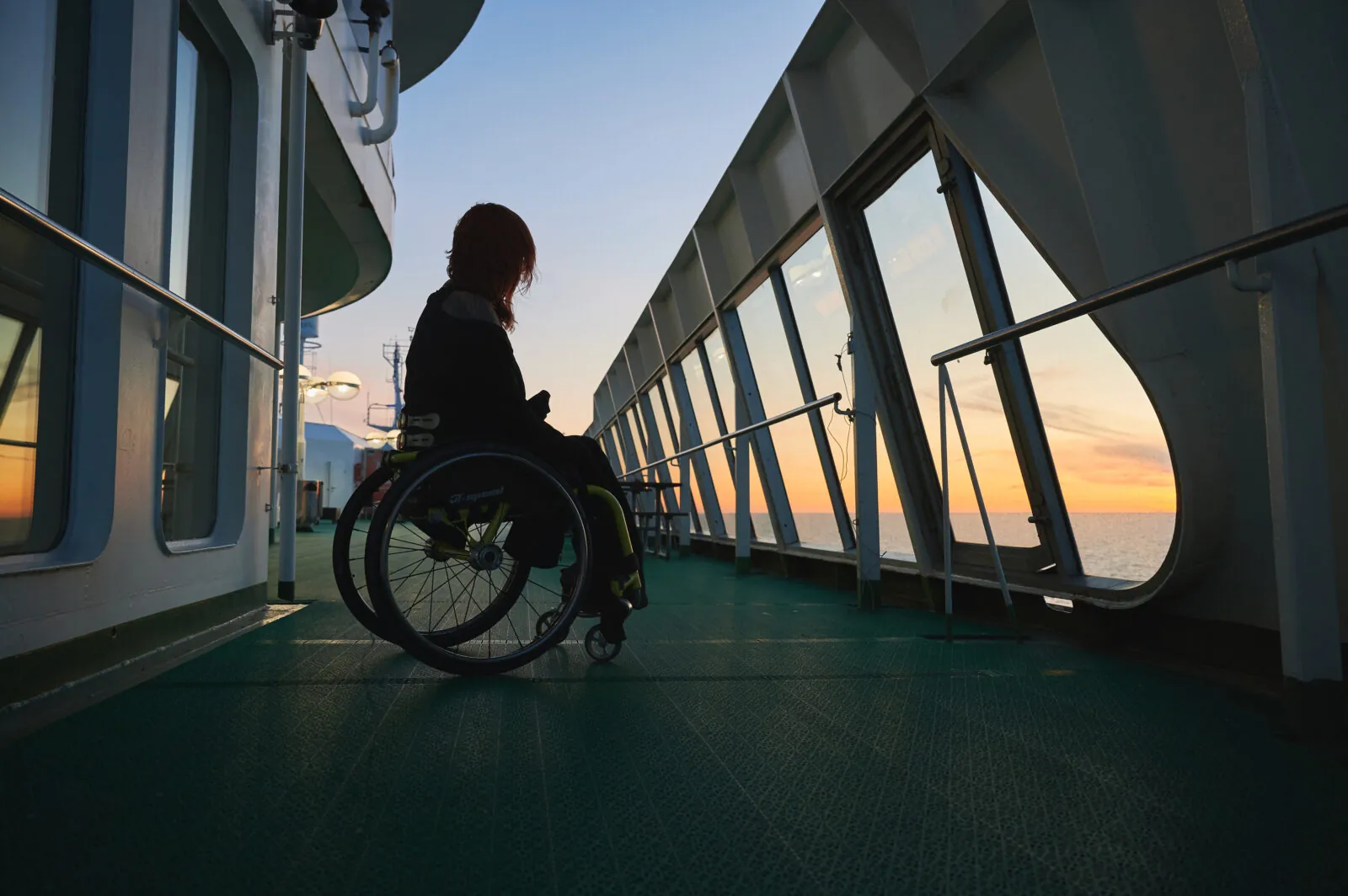Cruise vacations are designed to be luxurious getaways, offering travelers the chance to explore exotic destinations while enjoying world-class entertainment and amenities. However, accidents and injuries can occur even on these floating paradises, turning a dream vacation into a nightmare. When such incidents happen, understanding your legal rights and the steps to take is crucial for protecting yourself and seeking rightful compensation.
This comprehensive guide covers everything you need to know about cruise ship injuries, including common types of accidents, legal liabilities, the process of filing a compensation claim, and the complexities of maritime law. Whether you’re dealing with a slip and fall, medical negligence, or another type of injury on international waters, this guide will help you navigate the legal landscape and safeguard your interests.
Common Types of Cruise Ship Injuries
While cruise ships provide a luxurious escape, they also present various risks for accidents and injuries. From slippery decks to inadequate medical care, passengers may encounter numerous hazards. Here are some of the most common types of cruise ship injuries:
Slip and Fall Accidents on Cruise Ships
Slip and fall incidents are among the most common causes of cruise ship injuries. These accidents can occur due to:
- Wet Decks and Floors: Pools, spas, and dining areas often have wet surfaces, increasing the risk of slips and falls.
- Poorly Maintained Walkways: Uneven flooring, worn-out carpeting, and broken tiles can create tripping hazards.
- Insufficient Warning Signs: Lack of warning signs near wet or hazardous areas can lead to unsuspecting passengers slipping.
These incidents can result in serious injuries, including fractures, head injuries, and spinal cord damage. In many cases, cruise lines may be held liable if they failed to maintain safe conditions or adequately warn passengers about hazards.
Medical Negligence on Cruise Ships
Cruise ships are equipped with medical centers to provide healthcare to passengers. However, the quality of medical care can vary significantly. Medical negligence may occur due to:
- Inadequate Medical Staff: Some cruise lines employ medical staff with limited qualifications or experience.
- Misdiagnosis or Delayed Diagnosis: Failing to diagnose or properly treat an injury or illness can lead to complications.
- Insufficient Medical Equipment: Onboard medical facilities may lack advanced diagnostic equipment or essential medications.
If you believe that medical negligence worsened your injury or illness, you may have grounds for a compensation claim. However, it’s important to note that cruise lines often employ medical staff as independent contractors to limit their liability, complicating the legal process.
Injuries on International Waters
Cruise ship injuries often occur in international waters, where complex maritime laws apply. In such cases, determining the responsible party and pursuing compensation can be challenging. Factors influencing liability include:
- Location of the Incident: Injuries in international waters are typically governed by maritime law, whereas those occurring in port may be subject to local laws.
- Applicable Maritime Law: Different maritime laws apply depending on the ship’s flag state (the country in which the ship is registered).
- Jurisdiction and Venue Requirements: Many cruise lines require injury claims to be filed in specific jurisdictions, often where the cruise line’s headquarters are located.
Understanding these legal complexities is crucial for pursuing compensation. Consulting with a cruise ship injury lawyer experienced in maritime law can significantly improve your chances of success.
Cruise Ship Liability Explained
Cruise lines have a legal duty of care to provide a safe environment for their passengers. However, determining liability for cruise ship accidents is not always straightforward. Here’s what you need to know:
Who is Liable for Cruise Ship Accidents?
Liability for cruise ship accidents typically falls on the cruise line if negligence or failure to provide a safe environment is proven. This could include:
- Unsafe Conditions: Wet floors, defective equipment, broken railings, or poorly lit walkways.
- Lack of Warning Signs: Failure to warn passengers of hazards, such as wet floors or construction zones.
- Negligent Security or Staff Behavior: Inadequate security measures, improper training, or inappropriate actions by staff members.
In some cases, third parties such as excursion operators or maintenance contractors may also be liable if their negligence contributed to the injury. However, cruise lines often include disclaimers in their contracts to limit their liability for third-party activities, so it’s essential to understand the terms and conditions of your cruise ticket.
How Cruise Line Negligence is Determined
To establish negligence in a cruise ship injury claim, you must prove the following elements:
- Duty of Care: The cruise line owed you a duty of care to provide a safe environment.
- Breach of Duty: The cruise line breached that duty through action or inaction.
- Causation: The breach directly caused your injury.
- Damages: You suffered actual damages, such as medical expenses, lost wages, or pain and suffering.
Maritime Law and Cruise Ship Liability
Cruise ship accidents are governed by maritime law, which differs significantly from standard personal injury law. Key differences include:
Jurisdiction
Most cruise lines require injury claims to be filed in specific courts, often in the state where their headquarters are located. For example, many major cruise lines require lawsuits to be filed in Florida.
Statute of Limitations
Under maritime law, passengers typically have one year to file a personal injury lawsuit against the cruise line, which is shorter than the standard statute of limitations for personal injury claims.
Liability Limitations
Cruise lines often include liability limitations in their contracts, reducing their responsibility for certain types of accidents or injuries.
Understanding these legal complexities is essential for pursuing compensation. Hiring a cruise ship injury lawyer experienced in maritime law can help you navigate these challenges and maximize your claim.
What to Do After a Cruise Ship Injury
If you get injured on a cruise ship, it’s essential to take the following steps to protect your rights and strengthen your compensation claim:
- Seek Medical Attention Immediately
Your health and safety are the top priority. Report to the ship’s medical center for immediate evaluation and treatment. This creates a medical record documenting the incident, which can be crucial evidence in your injury claim. If the injury is severe, you may need to be evacuated to a hospital on land. In such cases, it’s important to:
- Request Detailed Medical Records: Obtain copies of medical reports, diagnostic tests, and bills.
- Seek a Second Opinion: If you have doubts about the onboard medical diagnosis, seek further medical evaluation once you return home.
- Report the Injury to Cruise Ship Staff
Notify the ship’s staff or security about the incident and request an official accident report. Make sure to get a copy of the report for your records. This document serves as crucial evidence when filing a compensation claim.
- Document the Incident
Collect as much evidence as possible:
- Photographs and Videos: Capture the accident scene, including any hazards or unsafe conditions.
- Witness Statements: Obtain contact details and statements from witnesses who saw the incident.
- Medical Records and Expenses: Keep detailed records of all medical treatment received, including prescriptions, bills, and travel expenses related to medical care.
- Consult a Cruise Ship Injury Lawyer
Maritime law is complex, and cruise lines are known for aggressively defending injury claims. Consulting an experienced cruise ship injury lawyer can help you navigate the legal process, understand your rights, and maximize your compensation.
Frequently Asked Questions (FAQs)
What are my legal rights after a cruise ship injury?
As a cruise ship passenger, you have the right to a safe environment and reasonable medical care. If the cruise line’s negligence contributed to your injury, you have the right to seek compensation for medical expenses, lost wages, pain and suffering, and other related damages. Additionally, under maritime law, you can pursue legal action if the cruise line failed to provide a safe environment or adequate medical care.
Can I sue a cruise line for negligence?
Yes, you can sue a cruise line for negligence if it can be proven that they breached their duty of care to provide a safe environment for passengers. This could include unsafe conditions, lack of warning signs, negligent security, or inadequate medical assistance. However, cruise lines often include disclaimers and liability limitations in their contracts, so consulting with a cruise ship injury lawyer is crucial for understanding your legal options.
Where can I file a cruise ship injury claim?
Most cruise lines require injury claims to be filed in specific jurisdictions, usually in the state where their headquarters are located. For example, many major cruise lines mandate that lawsuits be filed in federal court in Miami, Florida. These jurisdiction requirements are typically outlined in the fine print of your cruise ticket contract.
How long do I have to file a cruise ship injury lawsuit?
Under maritime law, passengers typically have one year to file a personal injury lawsuit against the cruise line. This statute of limitations is shorter than most personal injury claims, so it’s important to act quickly. Failing to file within this timeframe may forfeit your right to seek compensation.
Do I need a lawyer for a cruise ship injury claim?
While it’s not mandatory to hire a lawyer, it is highly recommended. Cruise ship injury claims involve complex maritime laws, jurisdictional requirements, and strict filing deadlines. Additionally, cruise lines have experienced legal teams to minimize their liability. An experienced cruise ship injury lawyer can help you understand your legal rights, navigate the claims process, and maximize your compensation.
Contact The Cruise Injury Law Firm Today
Cruise ship injuries can be complicated due to maritime laws and international waters. Knowing your rights and understanding the legal processes involved are crucial for seeking compensation. If you or a loved one has been injured on a cruise ship, don’t navigate the legal process alone. Contact The Cruise Injury Law Firm today to protect your rights and secure the compensation you deserve.



